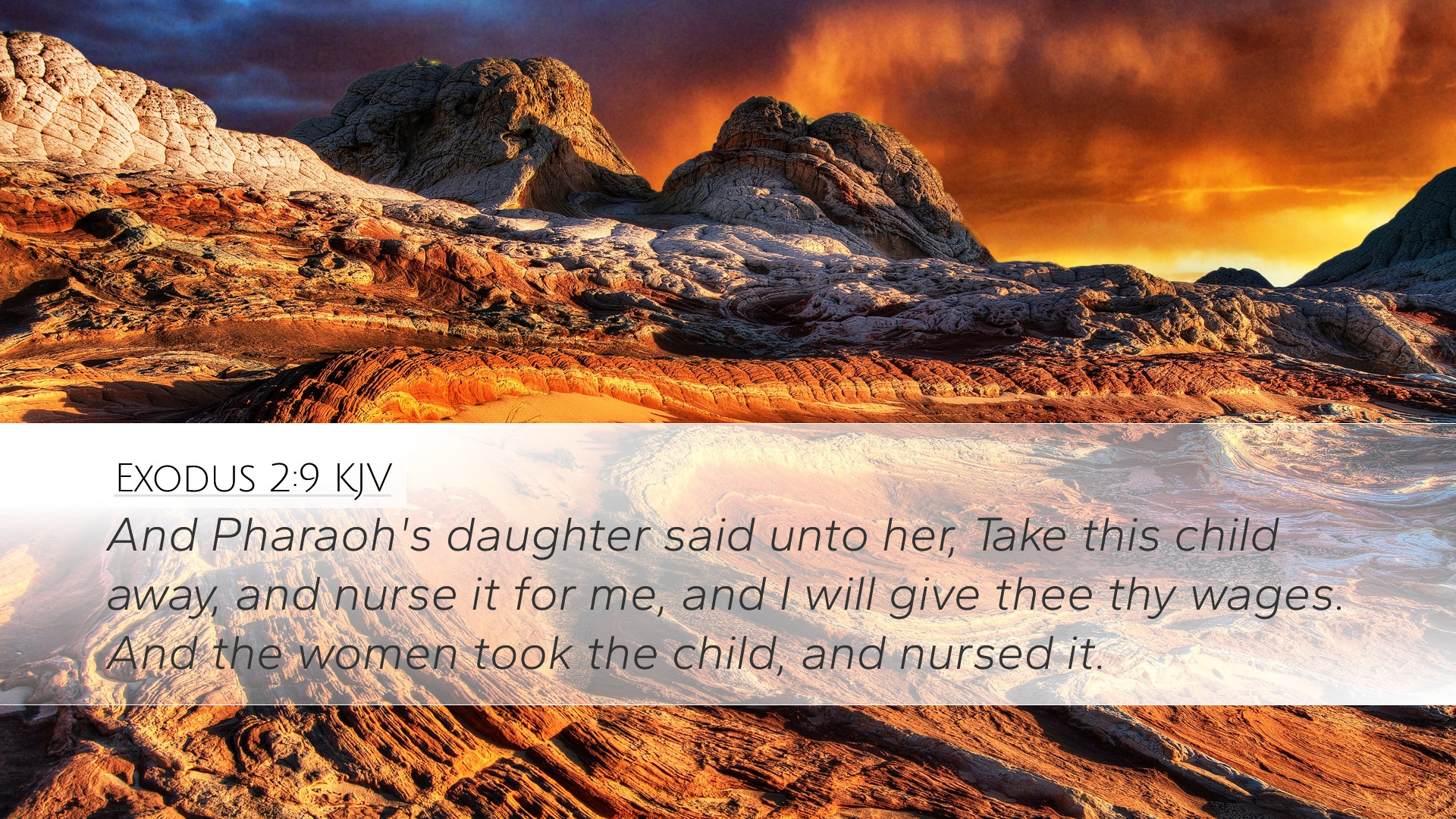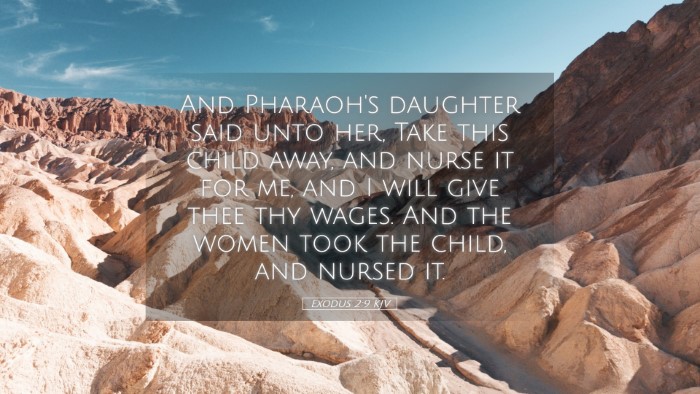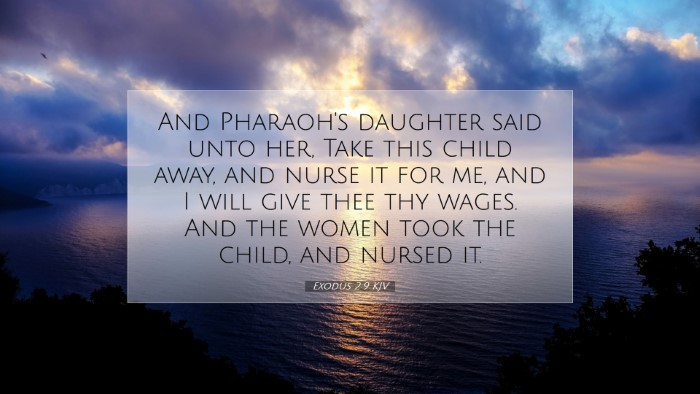Commentary on Exodus 2:9
Exodus 2:9 presents a critical moment in the narrative of Moses' life, highlighting God's providence and the strength of maternal love. The verse reads:
"And Pharaoh's daughter said to her, 'Take this child away, and nurse him for me, and I will give thee thy wages.' And the woman took the child, and nursed it."
Contextual Overview
This verse occurs in the broader context of Moses' infancy. Born to Hebrew parents during a time of oppression, Moses was hidden by his mother to evade the Pharaoh’s decree to kill all Hebrew male infants. Through divine orchestration, he was found by Pharaoh’s daughter, who was moved to save him from destruction. This incident sets the stage for Moses’ eventual role as the deliverer of Israel.
Theological Insights
-
Divine Providence:
The circumstances surrounding Moses' rescue embody a theme of divine providence. According to Matthew Henry, the very act of Pharaoh's daughter discovering Moses can be seen as a part of God's plan, showcasing that even in dire situations, God orchestrates events for the good of His people.
-
Maternal Love:
Highlighted in this verse is the remarkable bond between mothers and their children. Albert Barnes emphasizes the faith and trust shown by Moses' mother, who, despite risking her life, placed her child in a basket on the Nile, knowing that God would take care of him.
-
God’s Command Over Authority:
The power wielded by Pharaoh is contrasted sharply with the providential authority of God. As Adam Clarke points out, that the child is taken from the oppressor's home and nurtured in safety signifies that God's plans supersede human authority. Even those in high power can be agents of God's providence without realizing it.
Cultural Implications
In ancient Egyptian culture, the act of adopting a child was significant. Pharaoh's daughter takes Moses in as her own, which indicates a break from the oppressive customs of her father. The social and political implications of this act are profound, as it allows a Hebrew child to grow under the protection of Egyptian royalty.
Philological Insights
The original Hebrew word for 'nurse' used here conveys the idea of suckling, but also carries the weight of nurturing. This suggests that the woman's role extends beyond mere physical sustenance to include emotional and spiritual upbringing, as noted in Barnes' Notes.
Practical Applications
-
Faith in Uncertainty:
The narrative encourages believers to have faith in uncertain circumstances. Similar to Moses' mother, individuals today may face crises where they must trust God to provide and protect.
-
The Role of Women:
This verse celebrates the influential role of women in God's plan. The courage of Moses' mother and the compassion of Pharaoh's daughter remind us of the vital contributions women make in parenting, nurturing, and shaping future generations of believers.
-
Divine Provision:
God's unexpected provisions can come through unlikely means, such as Pharaoh's daughter employing Moses' own mother to nurse him. This highlights that God can work through any circumstance to fulfill His purposes.
Conclusion
Exodus 2:9 serves as a powerful testament to God's sovereignty, the significance of maternal love, and the unfolding of divine purposes amidst human authority. By reflecting on this passage, pastors, students, and theologians can glean insights into God's requirements and the unfathomable ways He orchestrates the lives of His people.


